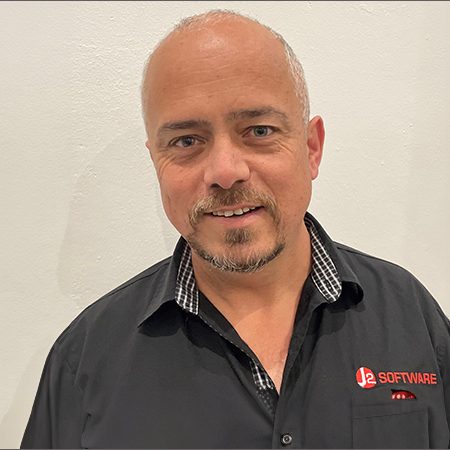
Many businesses, particularly smaller ones, often fail to recognise the importance of cybersecurity. Research indicates that most small and medium-sized enterprises invest less than £500 annually in cybersecurity. This underinvestment is typically due to indifference or a lack of understanding. It’s similar to insurance – rarely needed, but crucial when required.
J2 Software CEO John Mc Loughlin shares his experiences, insights and passion for protecting businesses, big and small, from the ever-growing threats in cyberspace.
Mc Loughlin begins by shedding light on J2 Software’s mission – to implement practical cybersecurity solutions for customers of all sizes, ensuring they can work securely from anywhere.
“I disagree with the notion of cybersecurity as an insurance policy. It is actually an enabler for doing more business. It allows companies to grow and service larger markets securely,” he says, explaining that security should be seen as an essential tool for growth rather than a reactive safeguard.
Bridging the investment gap between small and large businesses
Interestingly, he notes that large businesses also fall short when it comes to investing in cybersecurity. “There’s massive underinvestment across the board,” he says. He compares this mindset to purchasing a car and expecting it to run without ever needing maintenance or fuel.
For Mc Loughlin, visibility is key. “We can’t stop criminals from trying to attack, but we can ensure total visibility so that our customers can continue working without disruptions. I cannot emphasise enough that on-going vigilance and adaptability are essential for long-term security.”
The impact of AI
With AI being a hot topic, he acknowledges its influence on cybersecurity. “While AI has been leveraged by cybercriminals to create more convincing phishing attacks and scams, it’s also a powerful tool for defence. AI helps us detect patterns far quicker and more efficiently.”
The on-going evolution of AI is something he’s keeping a close eye on, as the rapid pace of change continues to reshape the cybersecurity industry.
“One of the biggest challenges has been staying ahead of the curve. We’ve always been ahead in terms of automation and visibility, but it took years for customers to catch up to the language we’ve been speaking,” he adds.
“We prevent bad things from happening to good businesses and that’s what keeps me motivated,” he says. “We’re helping businesses stay afloat and in turn, those businesses support families and communities. It’s a ripple effect.”


